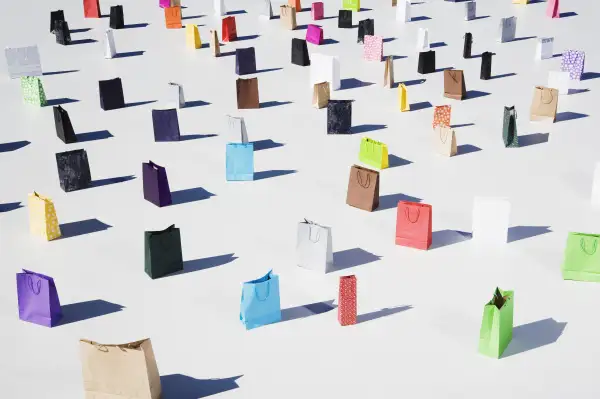Hey, Impulse Spenders: Here's a Solution to Your Bad Habit

A study recently published in Psychological Science shows that an attitude of gratitude tempers impulsive urges. In the study, participants had the option of receiving $54 now or $80 in a month. The researchers then induced moods of happiness, neutrality, or gratitude. Participants in the happy or neutral groups preferred the smaller sum immediately—the typical response in delayed gratification experiments.
The surprise came from those who felt grateful. They preferred to wait for the larger sum, which is the smarter, if less immediately gratifying, option.
The authors don’t say why gratitude forestalls impulsiveness, but their findings make sense within the context of my own research. I’ve found that people typically purchase impulsively for one of two reasons. They do so 1) to counteract a sense of emptiness, boredom, or void in their lives; or 2) because they are not fully focused when making a purchase. Gratitude can be the antidote in both of these scenarios.
Fill the Void
Impulsively snapping up a bargain or a trinket (or more) can provide an emotional boost, even a genuine momentary thrill. A void you feel—which can range in magnitude from simple boredom to a deep emotional need for human connection—is temporarily filled in the act. Sometimes the pleasure of some new "find," or just the distraction of the transaction is subconsciously more what people are shopping for than whatever it is that's actually being purchased.
People that “fill up” with impulsive purchases in this manner are often thought to be motivated by simple greed. What I’ve found, though, is that the catalyst is not so much greed or materialism, but emotional relief. Momentary lapses of impulse control are frequently fueled by an urge to feel something different—to get out of a funk and change your mood.
Feelings of gratitude, not just for possessions, but for almost anything—a friendly encounter, a cool breeze, a tasty lunch, a nice text from your kid, a beautiful landscape—are nourishing. It’s harder to feel a void or sense of emptiness when you pause and notice how much you have. It makes sense that everyone, not just shoppers, exhibit greater levels of impulse control when they feel thankful.
Get in Focus
Consumers' minds nowadays are drawn in different directions by nonstop multitasking, and anxiety and sleep deficiencies are on the rise as a result. Focused decision-making, particularly on seemingly non-urgent tasks such as shopping, is on the decline, as is truly focusing on anything, it seems. No wonder I increasingly hear, “What was I thinking when I bought this?” from shoppers I interview. An exhausted, distracted brain pays less attention to everything and therefore has less bandwidth to forestall impulsive purchasing.
The calming focus of gratitude can help. A few seconds of thankfulness is not only a mood elevator, it’s a fast and simple mindfulness exercise that improves focus and can stave off mindless, impulsive spending.
But if you're trying to rein in impulse spending, wouldn't it make more sense to simply force yourself to pay closer attention to purchases, rather than trying to focus on feelings of gratitude? Well, no. Focusing on purchases is actually harder than it seems. Why? It's boring when compared to the thrill of the purchase, and therefore consumers are apt to forget they're supposed to be mindful and think twice about what they're buying.
Also, paying close attention to purchases comes with the possibility of arousing negative emotions—feelings concerning problems with debt or budgeting, or pressures about responsibility and what you should or should not do. Our self-protective, irrational brains are likely to look for an easy “out” to get rid of these bad feelings, ironically often by simply losing focus and doing things mindlessly, impulsively. That’s why so many consumers experience a mismatch between their good intentions and ultimate actions when it comes to shopping.
Gratitude is a gentle way to force focus, and it creates a sense of abundance that transcends the need for a momentary shopping boost. As a bonus, there are lots of other benefits to feeling and expressing gratitude—most notably, happiness.
_____________________________________________________
Kit Yarrow, Ph.D., is a consumer psychologist who is obsessed with all things related to how, when and why we shop and buy. She conducts research through her professorship at Golden Gate University and shares her findings in speeches, consulting work, and her books, Decoding the New Consumer Mind and Gen BuY.